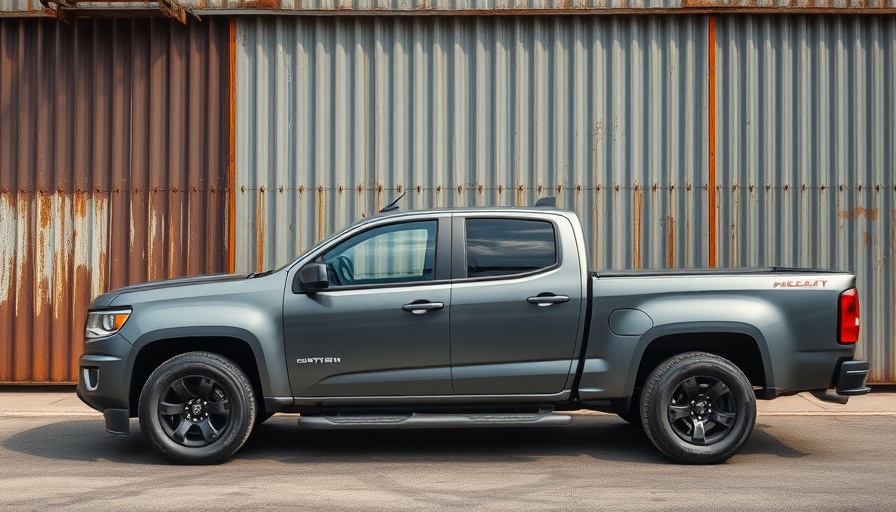
The Impact of Tax Incentives on EV Pricing
Slate Auto's recent decision to discontinue its under $20,000 pricing for its upcoming electric vehicle (EV) highlights the significant impact of government policies on the automotive industry. The impending end of the federal EV tax credit, recently passed in President Trump’s tax cut bill, has forced companies like Slate to rethink their pricing strategies. Initially, the $7,500 tax incentive was a critical selling point, allowing consumers to envision owning an electric truck at an accessible price. However, with that incentive disappearing, Slate faces the challenge of maintaining consumer interest while reaffirming its commitment to affordability.
Revolutionizing Affordability in the EV Market
Slate Auto's ambition to craft a highly customizable electric pickup truck aimed at a base price of under $20,000 was rooted in addressing affordability in an increasingly expensive auto market. As Chief Commercial Officer Jeremy Snyder stated, traditional automotive prices have escalated to levels that are largely unattainable for average Americans. Slate aims to disrupt this trend by creating vehicles that promise value and accessibility. The company plans to commence production at the end of 2026, but it remains to be seen whether they can retain the enthusiasm of potential buyers without the tax credit's financial cushion.
Potential Challenges Ahead for Slate and Other Startups
The road ahead for Slate Auto may present several hurdles. Without the $7,500 federal tax credit, the actual price of the vehicle may shift significantly, altering its marketability. Slate has yet to disclose an alternative pricing model that can attract its target consumers. Additionally, the customizable feature of the EV might mean that many buyers opt for higher-end versions rather than the more affordable base model, creating more uncertainty regarding the company's business viability.
Broader Implications for the Electric Vehicle Ecosystem
Beyond Slate Auto, the reduction of federal incentives could signal a broader shift in the electric vehicle market, prompting established manufacturers and emerging startups alike to reassess their pricing structures and business models. If prices increase due to these changes, aspiring EV buyers might remain on the fence, exacerbating the already challenging transition towards a more sustainable transportation ecosystem. Leaders in the automotive and tech industries must pivot quickly to place an emphasis on innovative solutions that stimulate demand amidst tax policy shifts.
Supporting Emerging Technologies and Sustainability
It is imperative for the industry to maintain a focus on sustainable practices and push for governmental support to foster an environment for affordable electric vehicles through tax incentives and subsidies. These measures not only benefit new startups like Slate Auto but also contribute to the long-term goal of expanding the EV market as a viable alternative to traditional vehicles. Ensuring the continuation of support for electric vehicle initiatives can lead to significant advances in sustainability and innovation.
 Add Row
Add Row  Add
Add 




Write A Comment